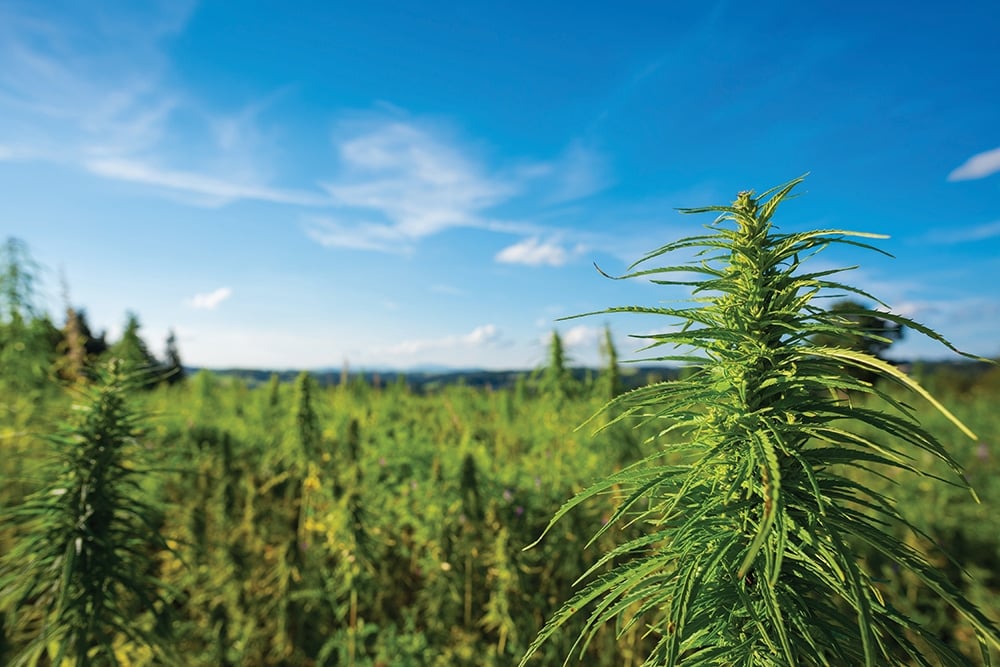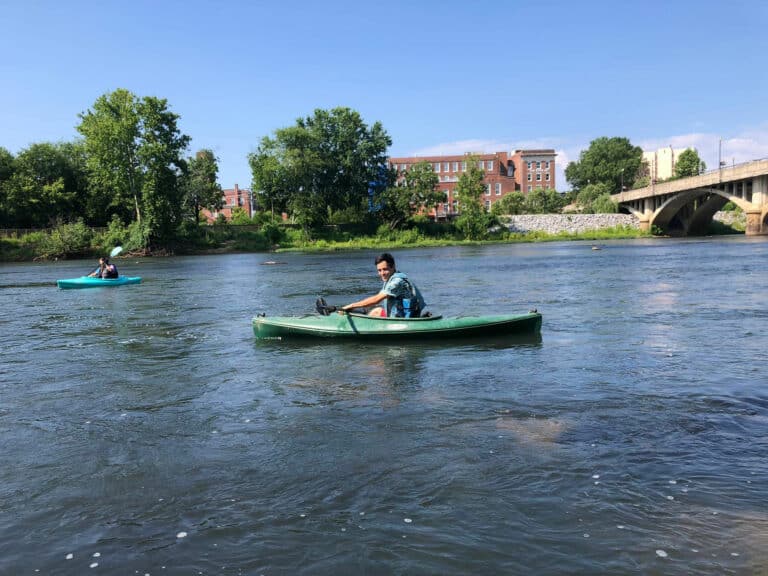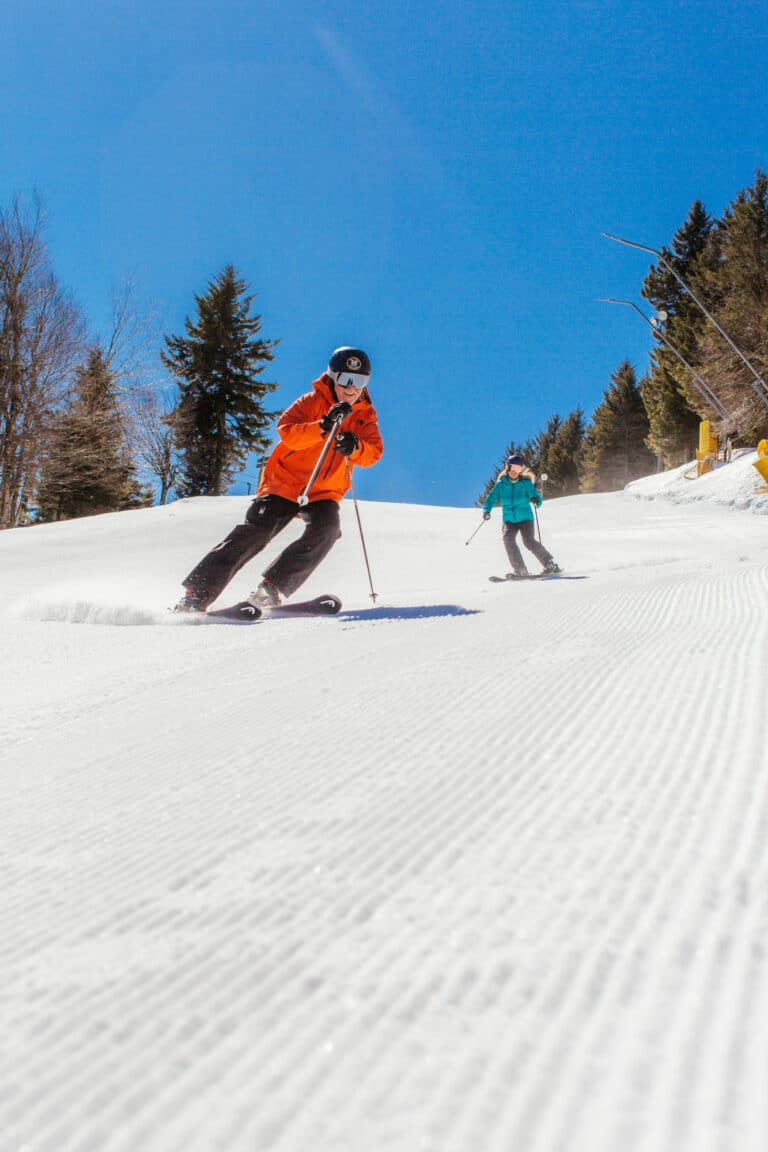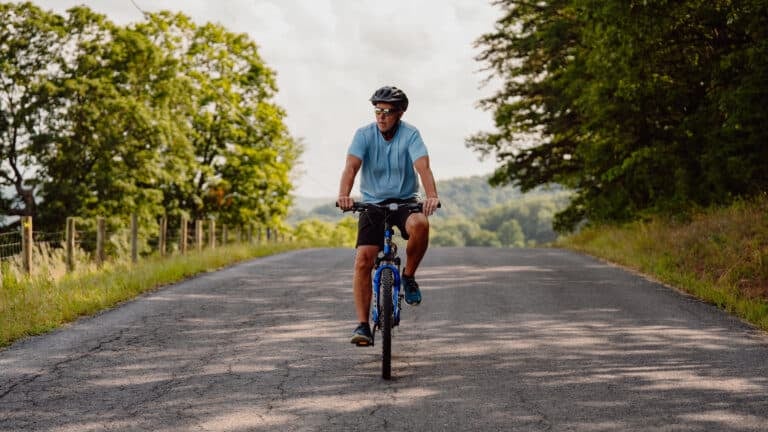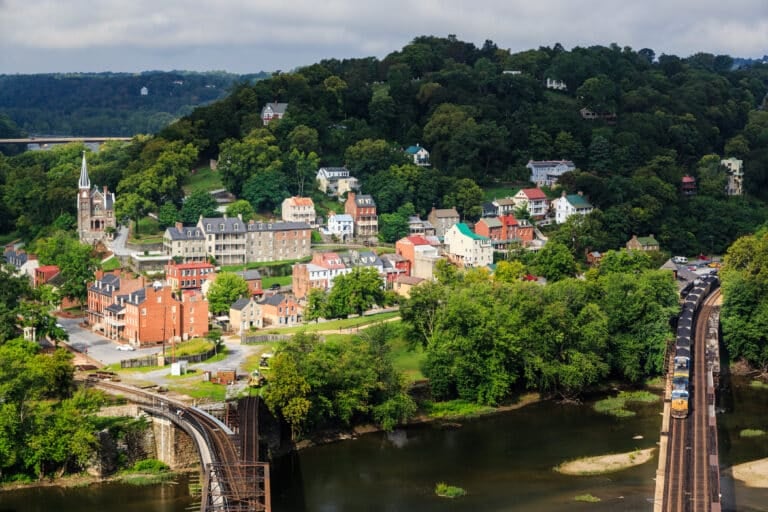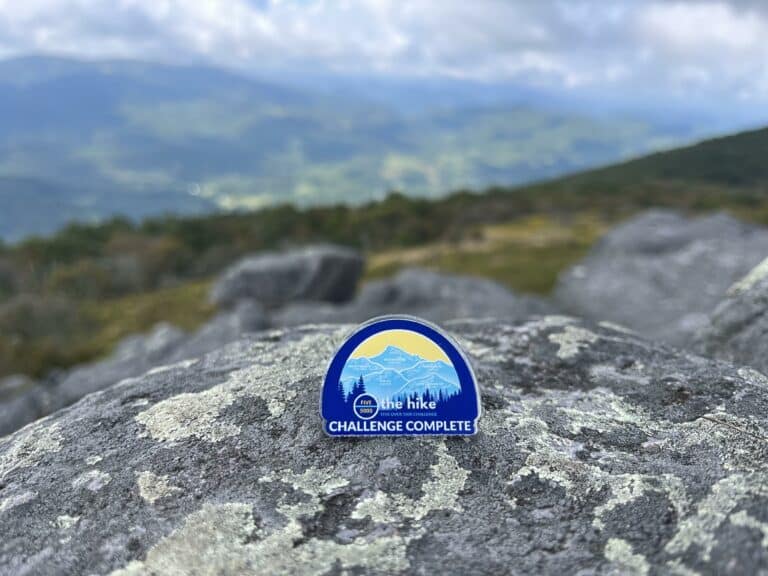Hemp farming is gaining a foothold in Appalachia—and could turn the region into a production powerhouse.
Floyd Landis strolls with Amish farmer, Ben King, through a one-acre patch of six- and seven-foot-tall organically grown Cannabis sativa plants in Pennsylvania’s southern Lancaster County. The retired road cyclist and disqualified Tour de France winner palpates a thick, bright-green cola, smells his fingertips and grins at business manager, Jake Sitler, also a former pro bicyclist.
“She’s just about ready,” says Landis. The tableau smacks of a Cheech & Chong film, but this is totally legal.
Known as hemp, the plants are the same species that yields marijuana, but have been bred to produce low THC (the psychoactive compound responsible for the mind-altering effects of marijuana), and large concentrations of cannabidiol, or CBD. They’ll be harvested in about two weeks and taken to a Columbia processing facility, where the chemical will be extracted. The CBD is used to make a range of value-added products, including tinctures, creams, balms, tonics, gummies, and more. They’re sold at a new storefront café in nearby Lancaster and online.
The crop is one of many: Landis’s company, Floyd’s of Leadville, has contracted with about 85 local farmers to grow more than 255 acres of hemp annually.
“Doing this here is attractive because the hemp grows much better [in this region] than it does out west,” says Landis, who has sourced from U.S. farmers since launching Floyd’s in Colorado in 2016. There, mature plants are about a third smaller. That means farmers like King could gross upward of $20,000 per acre. No small feat, considering corn brings just $570.
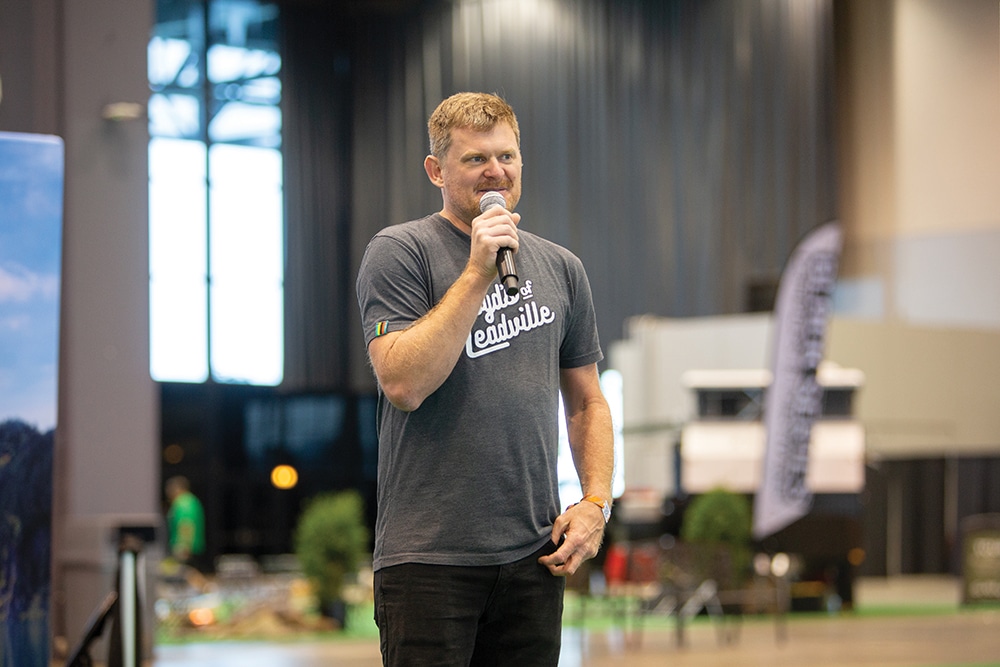
Retired pro cyclist Floyd Landis, a Pennsylvania native, sells CBD products at his recently opened Floyd’s cafe in Lancaster. Photo courtesy of Floyd’s of Leadville
But Landis, who has long lived in Colorado, was inspired to return to Pennsylvania by more than profits. Raised in a Mennonite farming community near Lancaster, he saw the devastation wreaked by a declining dairy industry—120 farms closed statewide in 2018 alone. Like tobacco, growing hemp for CBD can bring big profits, but requires close monitoring and is labor intensive. Additionally, the oil in the plants jams up industrial machinery. It seemed a perfect fit for groups like the Amish.
“These folks know how to work hard and still do pretty much everything by hand the old-fashioned way,” says Landis. “Their emphasis is on premium quality goods and produce, which meets our needs exactly.”
Partnering with local farmers seemed a win-win scenario. To minimize farmers’ risk, Floyd’s paid for seedstock and offered a buyer’s guarantee. The first crops were sown and harvested in 2019. Landis’s Lancaster café opened in January 2020. Like sister shops in Oregon and Colorado, it caters to athletes and physically active adults, coupling a bike showroom, coffee shop, and health-foods bistro with a comprehensive CBD outlet.
Landis is one of many entrepreneurs driving a new and fast-growing hemp industry. He hopes businesses throughout the Southeast and Mid-Atlantic will adapt similar, locally focused seed-to-shop models. If that happens, resulting market stability could easily transform the Blue Ridge into a hemp-growing mecca. Farmers like King say that’s good news indeed.
“When I was a kid, tobacco was a big thing for small farms,” says Landis. Planting a few acres annually could bring cash for new equipment and other expenses. Now that tobacco has essentially vanished, “We think hemp can fill that gap, and in a big way.”
But CBD isn’t the only product fueling a hemp farming renaissance. There’s opportunity around edible seeds and industrial fiber as well.
“The funny thing about it is, this is something that’s both new to us and really historical,” says James Madison University (JMU) professor Sam Morton. He helps direct the school’s hemp research program, which focuses on seed and fiber production.
Hemp was vital to colonial and early American life. It arrived in Virginia in the mid-18th century and grew so well it birthed major industries. The plant was used in everything from the first blue jeans, to sails and cordage for U.S. Navy warships, to high-end poultry fodder, to culinary applications. By the early 19th century, the Shenandoah Valley, where JMU is located, had become the U.S. hemp-growing capital. Processing and distribution hubs soon sprang up in Kentucky and Tennessee as well.
Eventually, improvements to the cotton gin and increased availability of cheap fiber from Asia led to declines in the 1860s. When U.S. government prohibitions on marijuana—which, outside of special permitting, included industrial hemp—went into effect in 1937, the industry faded further. Heightened federal drug legislation passed in 1970 finished it off.
Changing public sentiments around marijuana and increased interest in the health benefits of CBD led to nationwide reforms in the mid-2010s, and federal legislation was passed in 2014 authorizing agricultural research and development for hemp production conducted with university oversight. Morton helped to launch JMU’s research program a year later. Another boost came in 2018, when commodity hemp production was legalized at the federal level.
“On one hand, having a regional growing history like ours was encouraging, because you knew the crop used to thrive here,” says Morton. That said, hemp hadn’t been cultivated at scale in the Shenandoah Valley for at least a century. By 2015, knowledge around best practices had long since been lost.
Still, Rockingham County was—and remains—Virginia’s largest agricultural producer. If there was a place to start reinventing the wheel, it was here. But there was a catch.
“Back then, pretty much all the research was focused on CBD production,” says Morton. And for good reason: Related domestic markets reached about $1.3 billion in 2019 and are projected to grow to upward of $11.3 billion by 2024. That’s good news for farmers, as it takes about 100 pounds of cured female flowers to make just one liter of CBD oil, and an acre of hemp produces roughly 1,305 pounds of flowers.
Sales from seeds and fiber, though, are even more substantial: The U.S. market reached $3.3 billion in 2019 and is expected to swell to about $15 billion by 2025. “It’s a considerable niche with a lot of room for growth,” says Morton.
While CBD plots rarely exceed more than an acre of land, farmers cultivating fiber or seed crops need to grow larger amounts. To understand their unique needs, Morton and his JMU colleagues partnered with experimentally inclined area farmers for plantings ranging from five to 15 acres.
“We’re looking at things like which varieties grow and yield the best in this climate, when are the ideal planting and harvesting times, what sort of pests do we have to look out for, what are the preferred soil conditions, can we adapt machinery for harvesting,” and so on, says Morton.
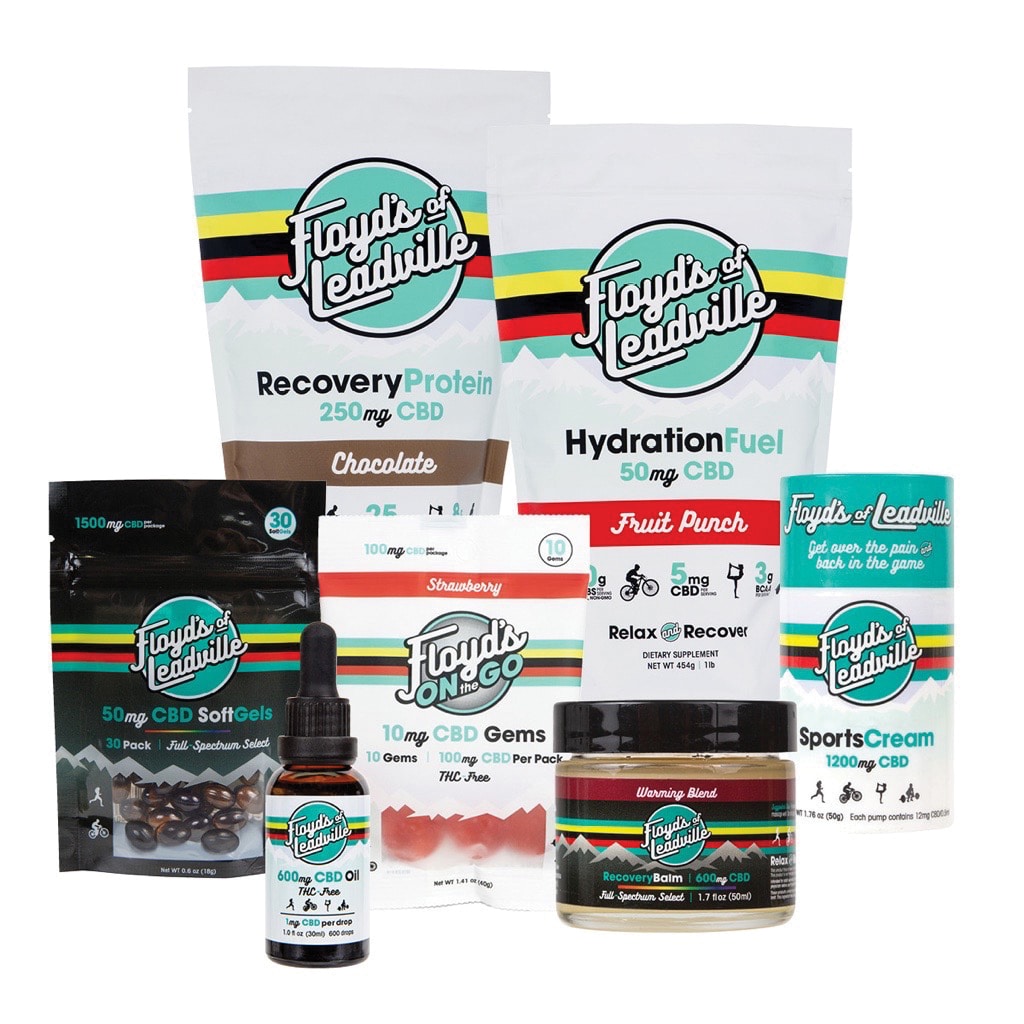
The process has been challenging for a number of reasons. For starters, locally adapted varieties of hemp no longer exist. Precedent research was mostly based out of China and Eastern Europe, and was decades old.
“It’s been a lot of educated guessing, a lot of trial and error,” says Morton. For instance, while Ukrainian hemp outcompetes weeds and requires few herbicides, there is a magic window for planting in Virginia. Miss it and weeds will swarm and kill seedlings.
There’s also the issue of a shaky market. Recent legalization, regulatory uncertainty around quality controls, and international competition can make it tough to secure buyers. Last year, farmers flocked to the promise of a new cash crop and created a supply glut, which led non-prenegotiated prices to drop by upwards of 75 percent.
But Morton says progress is being made. Virginia’s first cooperative processing plant—which handles seeds, fiber, and CBD extraction—launched in Wythe County in late 2019. Others have followed near Harrisonburg and in Richmond.
Affordable processing is a vital piece of the puzzle and a big step toward economic viability, says Morton. Companies that rely on profit-sharing agreements with farmers, instead of charging flat fees, help streamline the production of marketable products.
For instance, when seeds can be sold at farmer’s markets and health-foods stores, or used as high-protein and fatty acid fodder for organic poultry and swine.
“Basically, we’re trying to write the book on how to do this the right way,” says Morton. The goal is to create seed-to-shelf guidelines that will give farmers the information they need to make educated decisions around what is currently a high-risk market.
“What we don’t want is people literally betting their farm on a bunch of hype,” says Morton. “We need to put them in a position to succeed.”
For his part, Landis got interested in hemp after discovering the health benefits of CBD in the late 2000s. By then, a debilitating joint condition had necessitated a hip replacement and effectively ended his pro cycling career. Meanwhile, he was embroiled in legal controversies surrounding former USPS teammate Lance Armstrong and the squad’s systemic use of performance-enhancing drugs.
Landis was prescribed opiates for pain following surgery. With his life spiraling into a nightmare, he became addicted. A friend suggested CBD to help him kick the habit.
“And it worked,” says Landis. He started using it for recovery after rides, to ease anxiety, and alleviate pain. Astounded by the results, he began researching production, which soon led to investment.
“I wanted to do something different with my life,” says Landis. Given his history around doping and elite sports, he thought it would be interesting to create a bike-shop-meets-café, with a focus on all-natural CBD supplements and pain relievers.
When Landis co-founded Floyd’s of Leadville in 2016, he was among the vanguard of a new industry. Today the company’s products are sold in more than 3,000 convenience stores and 800 bikes shops and by 2,000-plus bike parts distributors. It grosses more than $25 million annually. He hopes other companies will follow in the footsteps of Floyd’s of Leadville and offer similar opportunities to struggling farmers.
“For me, this was a new beginning,” says Landis. “It’s been very, very positive.”
Cover Photo: Hemp plants are being grown on farmlands across Appalachia. photo courtesy of Getty Images
